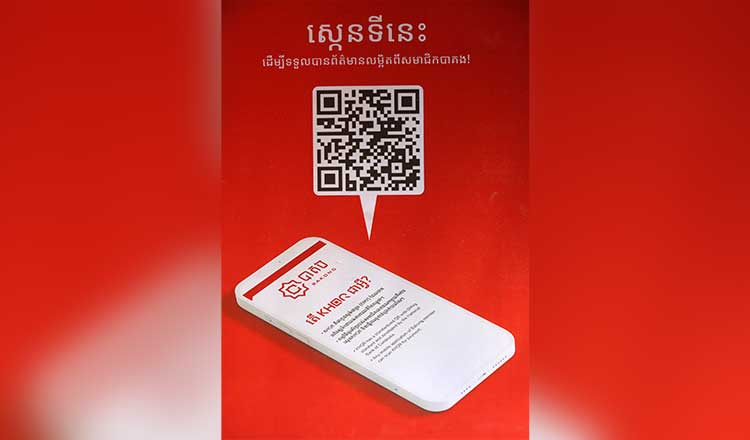Cambodia: Digital cash transfer, financial inclusion good, but need more work
Even as the use of technology for financial inclusion of the unbanked and under-banked population has been in the works for sometime across the globe, the Covid-19 pandemic gave an impetus to the use of digital channels for financial activity. Attention to digital channels grew with the pandemic affecting physical movement and other activities. In the Asia-Pacific region, countries have used technology to ease interactions within the financial systems.
The ODI report ‘Cash transfers and digital financial inclusion – Regional evidence from Asia Pacific with a focus on Bangladesh, Cambodia, and Nepal’ released in February 2023 has taken a look at the various aspects of digital financial inclusion and cash transfer payments.
The ODI, a leading global think tank, conducted research with the help of Cambodia Development Resource Institute (CDRI) in the Kingdom, and the respective local institutions in the two other countries (Bangladesh and Nepal). The research team reviewed 61 cash transfer schemes in the region.
In Cambodia, cash-based transfers during the Covid-19 pandemic and afterwards were made to garment factory workers and tourism sector employees to compensate for lost wages and incomes under the supervision of the Ministry of Labour and Vocational Training (MoLVT). The livelihoods of many beneficiary households have improved as a result of the programme in Cambodia, said the Asian Development Bank report in December 2022.
According to the Ministry of Social Affairs, Veterans and Youth Rehabilitation statement in October 2022, the government had provided $837.05 million through the scheme since June 2020 to support poor and vulnerable people affected by Covid-19. The scheme benefited 706,060 households by October 2022.

In Cambodia, the ODI researchers interviewed recipients of the Covid-19 emergency cash-based transfers and women in receipt of the child nutrition and grant allowance.
According to the study, commissioned by the World Food Programme (WFP), National Bank of Cambodia (NBC) considers low financial literacy in the country to be the greatest barrier to the adoption of digital payment systems. In line with its diagnosis, NBC ran workshops on financial literacy with select participants in the microfinance sector in 2020. It has also launched the ‘Let’s Talk Money Campaign’, which has issued videos on financial literacy.
However, the respondents to the study had not heard of the campaigns and were unaware of any financial literacy training, indicating perhaps that the bottom income quintile was not the main target for these outreach activities, it says.
NBC’s 2019–25 National Financial Inclusion Strategy, developed with the UN Capital Development Fund (UNCDF) assistance, is the main framework for financial inclusion in Cambodia. The government is committed to increasing access to quality formal financial services, reducing the financial exclusion of women by 50 percent (from 27 percent to 13 percent), and diversifying the usage of formal financial services from 59 percent to 70 percent by 2025, as well as improve household welfare and support economic growth, the ODI report states.
The Ministry of Social Affairs, Veterans and Youth Rehabilitation has been named the agency to implement the financial inclusion strategy – mainly via a role in promoting an inventory of small and medium-sized enterprise (SME) products.
Innovation in digital financial products and services – from mobile saving accounts to currency exchange applications – has opened new possibilities for financial inclusion for unbanked and under-banked groups. It provides new ways for people to access finance, and engage in payments, credit and savings, says the report.
Digital technologies appear to present new opportunities for improving the well-being of recipients of cash transfers as part of a shared commitment among donors and humanitarian actors to improving humanitarian outcomes and the efficiency and effectiveness of development and humanitarian action, it says.
The unbanked and under-banked are often individuals belonging to historically marginalised groups such as women, the elderly, people with disabilities and low-income households (often living in rural areas), as well as forcibly displaced people.
In the East Asia and Pacific region, 53 percent of unbanked adults are in the poorest 40 percent of households and globally, the poorest 40 percent of households make up nearly half of all the unbanked. Their reach to digital financial services is restricted in most cases by multiple regulatory, infrastructural and household barriers, which include lack of phones, electricity and internet connectivity, official identity papers, policies and regulations.
Within broader efforts to improve and expand digital financial inclusion, cash transfer payments by UN agencies and national governments have emerged as a potential opportunity to expand access to digital financial products and services among the poorest households.
While attention is being paid to whether and how the digitalisation of cash transfers can help to address disparities in digital financial inclusion, the report identifies a key knowledge gap in discussions and literature around how users perceive and experience such initiatives and how these fit into their social and economic lives.
The report says financial inclusion or digital financial inclusion should not be equated with ownership of or access to bank accounts but should consider this to be a first step that needs to include the terms of access as a key component, which digital cash transfers contribute to financial inclusion requires a look.
The study advocates a people-centric approach to financial inclusion in the Asia-Pacific region, a full assessment of the costs, strengthening of the enabling environment, greater coordination between social protection schemes and government agencies and development of a regulatory environment for digital financial services that aligns multiple interests.
Source: https://www.khmertimeskh.com/501247703/digital-cash-transfer-financial-inclusion-good-but-need-more-work/


 English
English




